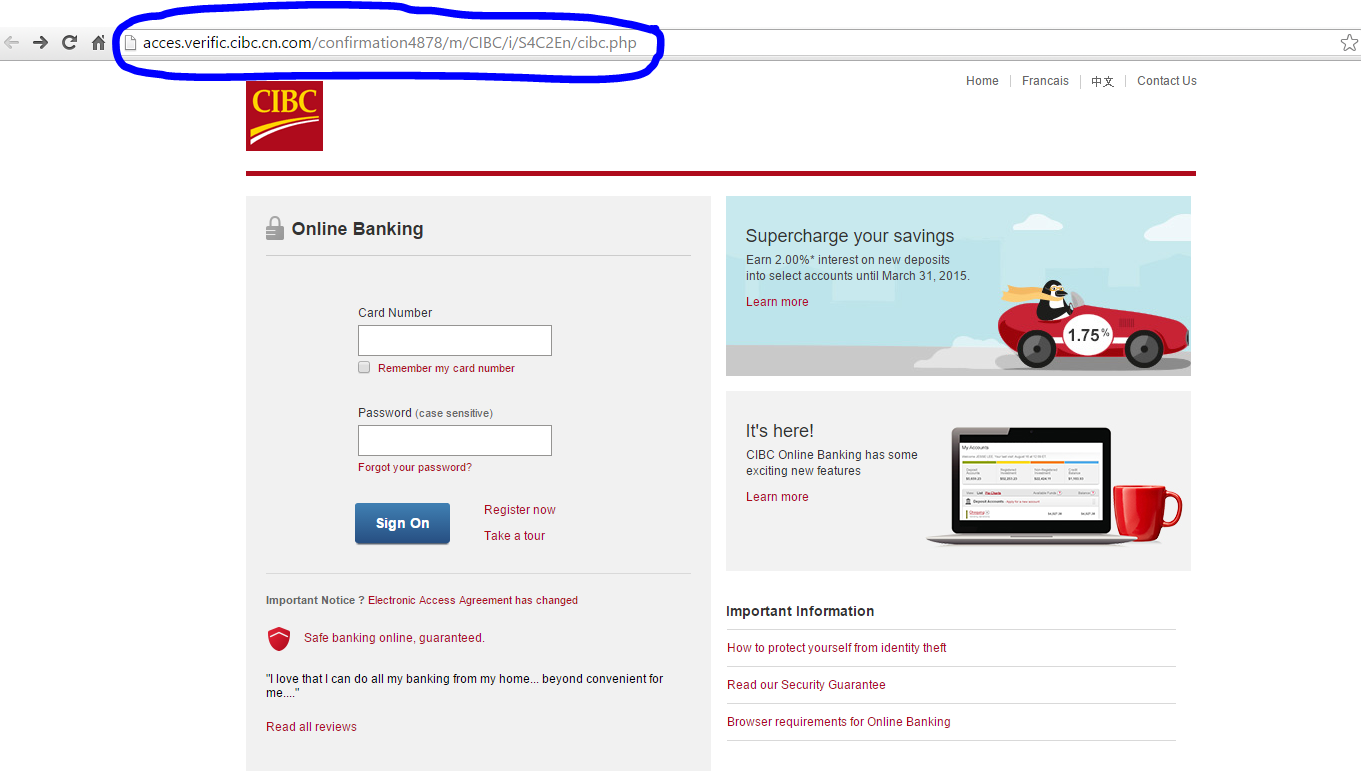 Last week, I met with my accountant – it’s that time of year, again. After we went through the paperwork for my taxes, he asked me what can be done to stop the scams.
Last week, I met with my accountant – it’s that time of year, again. After we went through the paperwork for my taxes, he asked me what can be done to stop the scams.
He was referring to two types of scams that are troubling his clients. One type is email phishing; the other is a a telephone shakedown.
 I have received both types over the years. The phishing fraud is getting better, meaning that authentic looking emails are getting through spam systems and clicking on the links takes unwitting consumers to websites that mirror the actual websites. At quick glance, the links are even passable, such as this one:
I have received both types over the years. The phishing fraud is getting better, meaning that authentic looking emails are getting through spam systems and clicking on the links takes unwitting consumers to websites that mirror the actual websites. At quick glance, the links are even passable, such as this one:
http: //acces . verific . cibc . cn . com/confirmation4878/m/CIBC/i/.
The telephone shakedown is even tougher to decode. The caller identification shows as being from Canada Revenue Agency, with an authentic toll free number; caller says that you have ignored repeated letters seeking payment of hundreds (or thousands) of dollars in unpaid taxes and now enforcement is coming to place you under arrest. Of course, the Agency is prepared to settle now if you want to put it on your credit card.
Both scams are fraud. No telemarketing or anti-spam regulations can stop the perpetrators. The CRTC has a web page “How to Protect Yourself from Scammers“. Its page on Call Fraud is empty of meaningful content and is out of date.
In late November, the CRTC published “Summary of Options Currently Available to Canadians to Manage Unwanted Calls“. The database listing does not appear to me to be useful. It was produced from information gathered as part of Compliance and Enforcement Notice of Consultation CRTC 2015-333 “Empowering Canadians to protect themselves from unsolicited and illegitimate telemarketing calls”.
As I have said before, I think the only effective solution is to provide better consumer education and have Canadians lose some of our inherent polite nature. Canadians need to be more willing to just hang up or press the delete key.
Tech savvy kids, consumer groups, schools, banks and social services agencies – together with the telecom industry – need to help vulnerable people recognize the signs. Just hang up.
Can you recognize a phone or email scam? What are the tell-tale signs? How can you help teach others what to look for?
